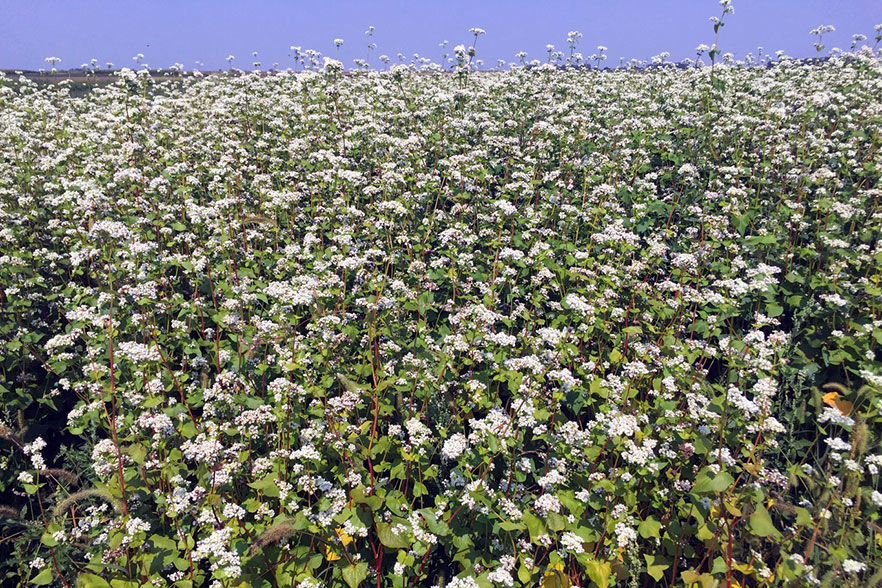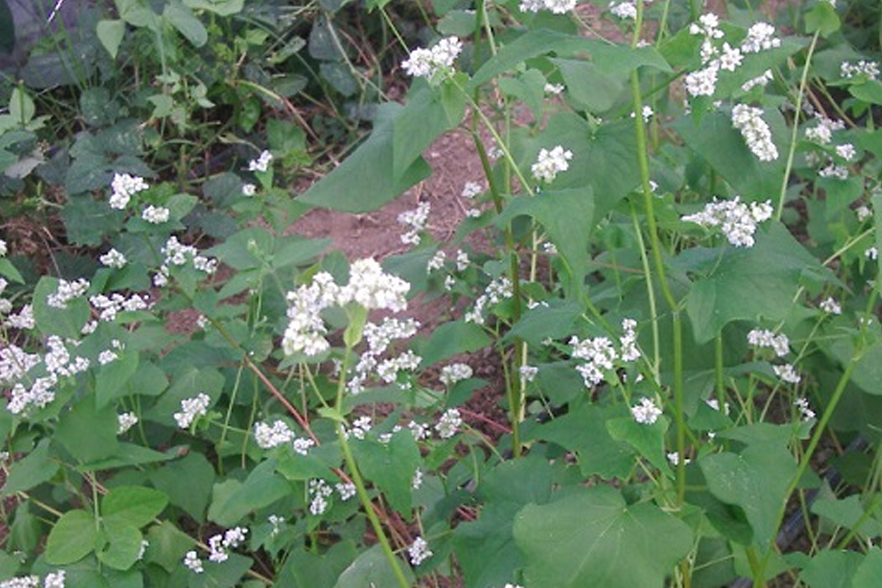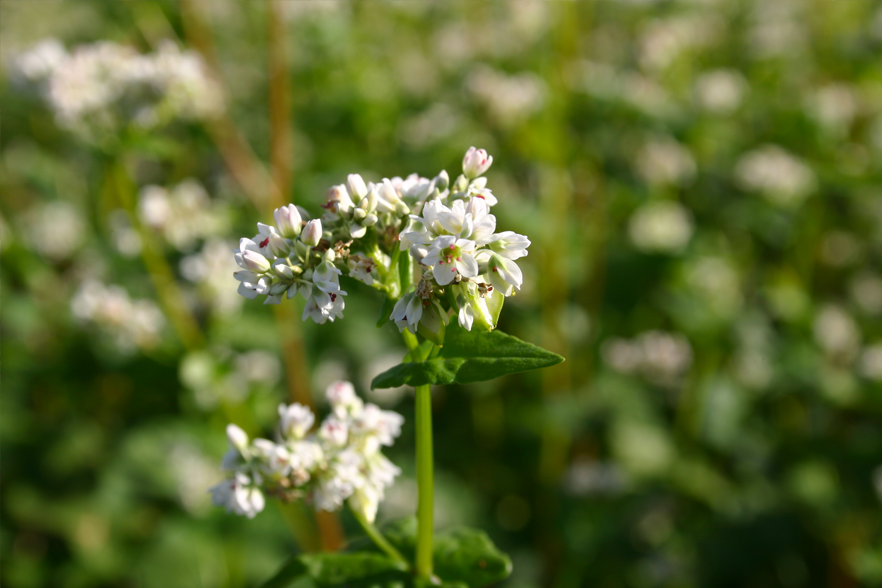2023 Cover Crop Seed
Buckwheat
Distribution
2 lb will broadcast over approximately 1,500 square feet
Season
All seasons in Hawaii
FREE LOCAL PICKUP
In Kaneohe, Oahu
2lb. Bag
$17.00
Out of stock



Planting buckwheat (Fagopyrum esculentum) can offer a range of benefits, particularly in sustainable agriculture and land management. Here are five benefits of planting buckwheat:
Soil Improvement: Buckwheat is known for its ability to improve soil health. It has a fibrous root system that helps break up compacted soils, improving soil structure and aeration. As the plant grows, it releases organic acids that can solubilize nutrients, making them more available to other plants.
Weed Suppression: Buckwheat is a fast-growing crop that forms a dense canopy, shading out weeds and reducing weed competition. This can be particularly beneficial when used as a cover crop between main crop plantings, helping to naturally suppress weed growth without the need for chemical herbicides.
Pollinator Attraction: Buckwheat produces abundant nectar and pollen, attracting a variety of pollinators such as bees, butterflies, and hoverflies. Planting buckwheat can enhance biodiversity and support pollinator populations, which are crucial for successful crop pollination.
Quick Growth: Buckwheat is known for its rapid growth rate. It typically matures within 8 to 12 weeks after planting, making it a valuable option for providing quick ground cover and vegetation in areas where soil erosion or bare soil are concerns.
Nitrogen Scavenging and Green Manure: Buckwheat is a non-leguminous crop, but it has the ability to scavenge and accumulate excess nitrogen from the soil, thus preventing its leaching into water bodies. When incorporated into the soil as green manure, buckwheat releases the accumulated nutrients as it decomposes, enriching the soil for subsequent plantings.
It’s important to consider your specific goals and local conditions when deciding to plant buckwheat. While it offers these benefits, its suitability may vary depending on factors such as climate, soil type, and intended use. If you’re interested in using buckwheat for specific purposes, consulting with local agricultural extension services or experts can provide guidance on how to best incorporate buckwheat into your land management strategies.
